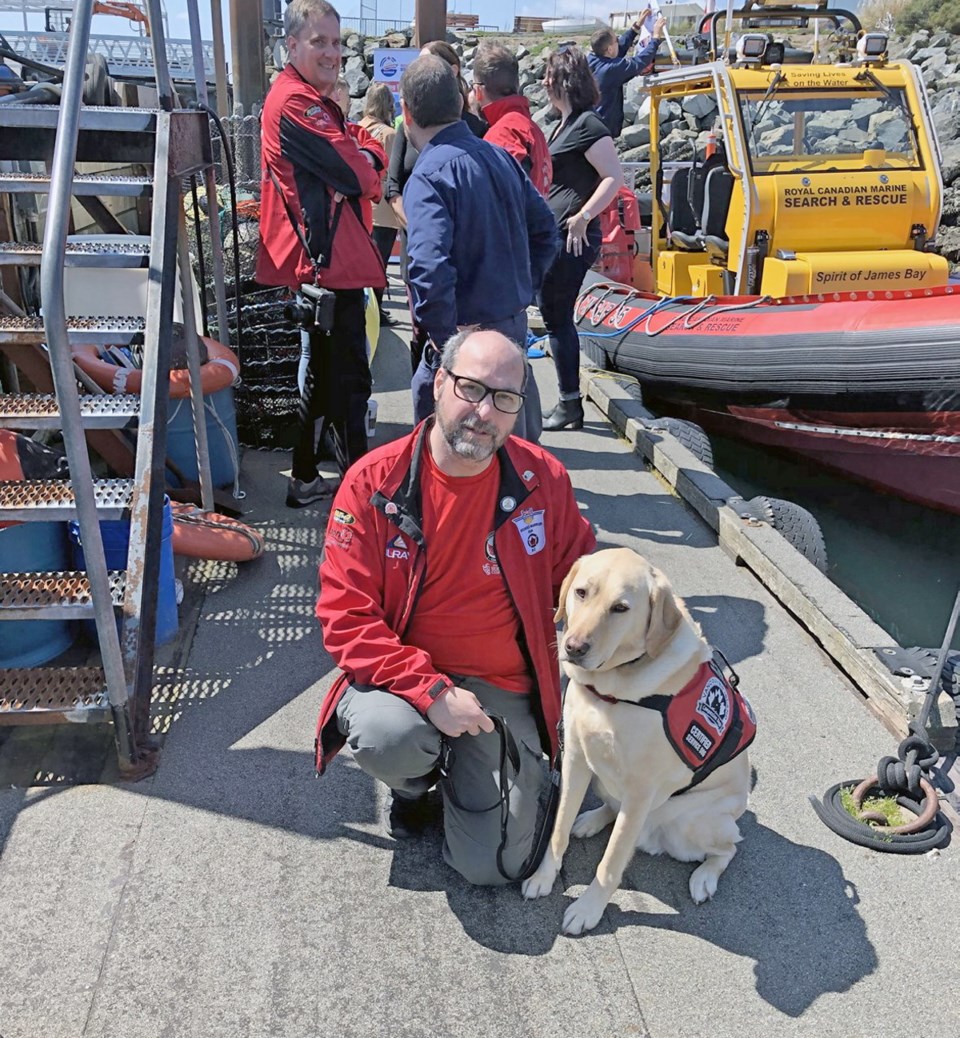Royal Canadian Marine Search and Rescue, whose members save people’s lives along B.C.’s coast and throughout the Interior, announced a new partnership this week with Wounded Warriors Canada.
Jacqueline Zweng, Victoria ambassador for Wounded Warriors Canada, said the search-and-rescue personnel now have access to Wounded Warrior programs. That includes group therapy, counselling in a clinical setting and help with stress-related problems.
The mission “is to normalize that conversation and provide the support for those people who have to do and see things in their line of duty,” Zweng said.
“This kind of partnership, what it does is it allows the members of the organization to stand up and say: ‘It’s OK to talk about mental-health issues such as [post-traumatic stress disorder].’ ”
David Best, station leader and a coxswain at Victoria’s Station 35 marine search-and-rescue unit, said the job of a search-and-rescue volunteer can be tough.
“For some of us, we don’t do this in our regular life,” he said. “We have office jobs or many different types of lines of work that are nowhere close to this.
“PTSD and dealing with the grief of not finding someone, it can weigh heavily on a volunteer.”
Not everyone wants to admit they need help, Best said.
“I think a lot of the guys you see around here, they’re pretty independent, pretty strong, sometimes thick-headed like myself and they don’t like to admit to any failures or any weaknesses.”
Pat Quealey, CEO of the search and rescue group, said it responds to an average of 800 calls each year, with about 80 per cent involving “some form of danger or distress for the people that we’re saving.”
“So that has its cumulative effects and certainly we want to make sure our responders are resilient and strong, and able to talk about the challenges they face,” said Quealey, who initiated the partnership
He said the group has 33 stations in as many communities, with a total of about 1,000 volunteers provincewide.
Stéphane Marcotte, who attended the Wednesday gathering with his service dog, Sarge, said Wounded Warriors Canada programs made a huge difference for him after he was diagnosed with PTSD following 28 years in the navy.
He is now a Wounded Warriors Canada volunteer.
Without the programs, “I would be home right now in my basement,” he said.
Zweng said it’s hoped that other search-and-rescue groups will also partner with Wounded Warriors and take advantage of its programs. The organization began as an initiative serving people from the Canadian Forces, but now includes other first responders.



